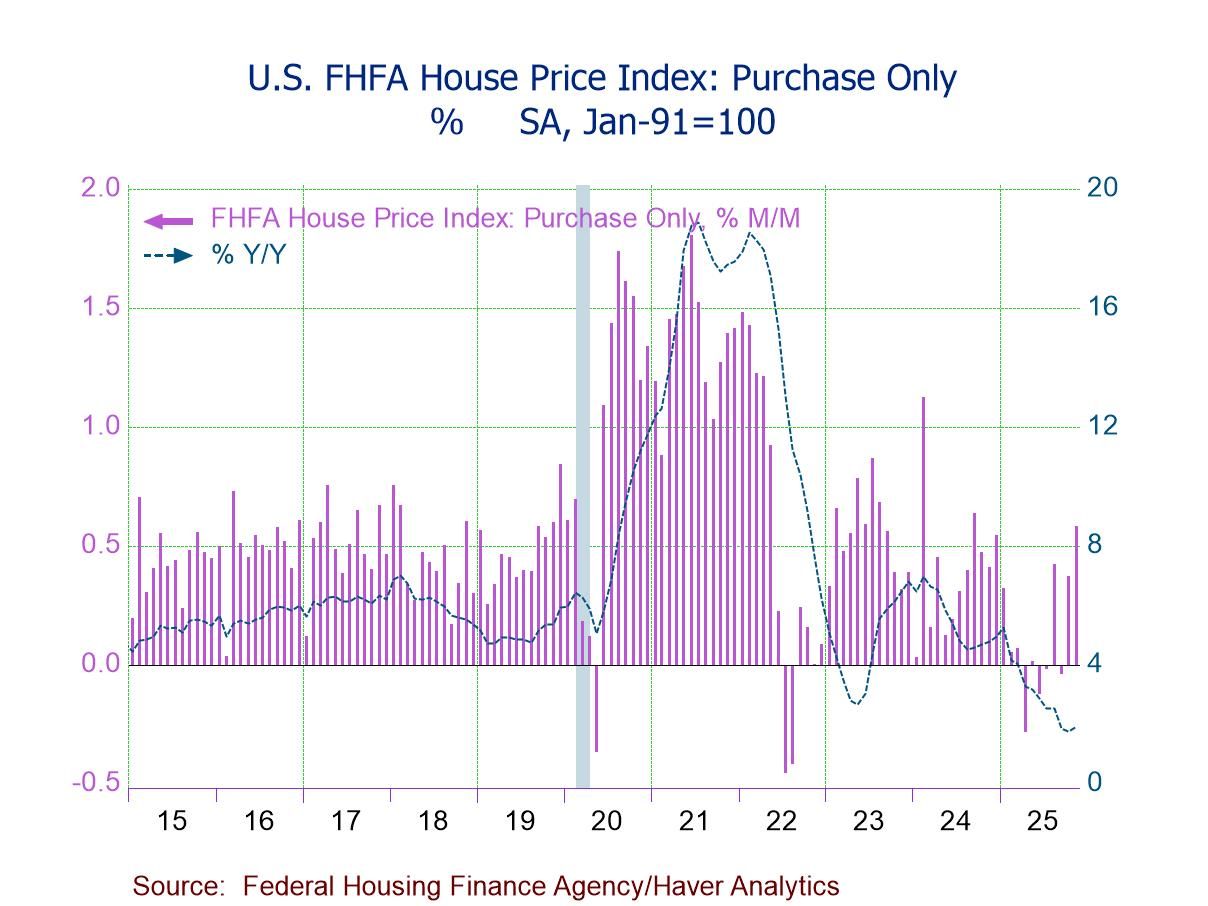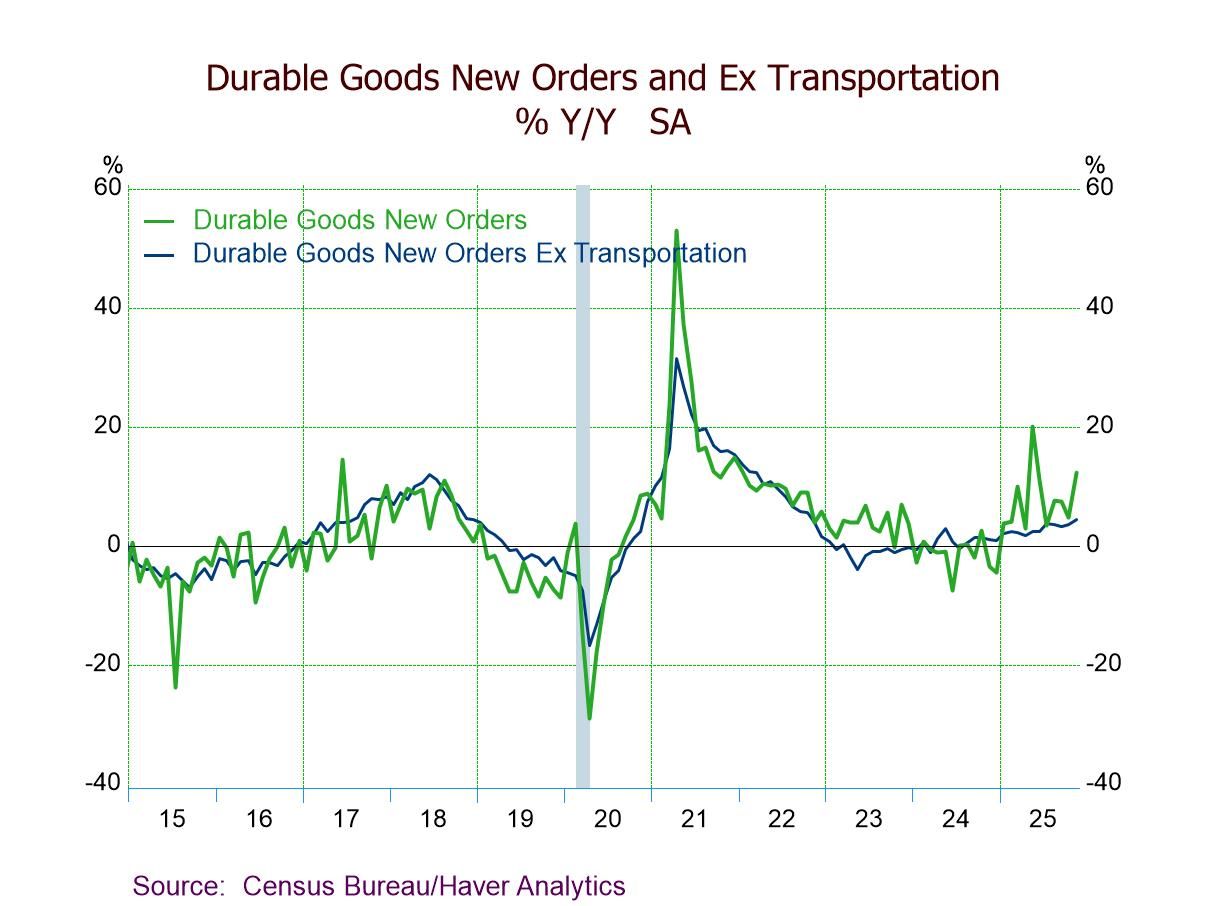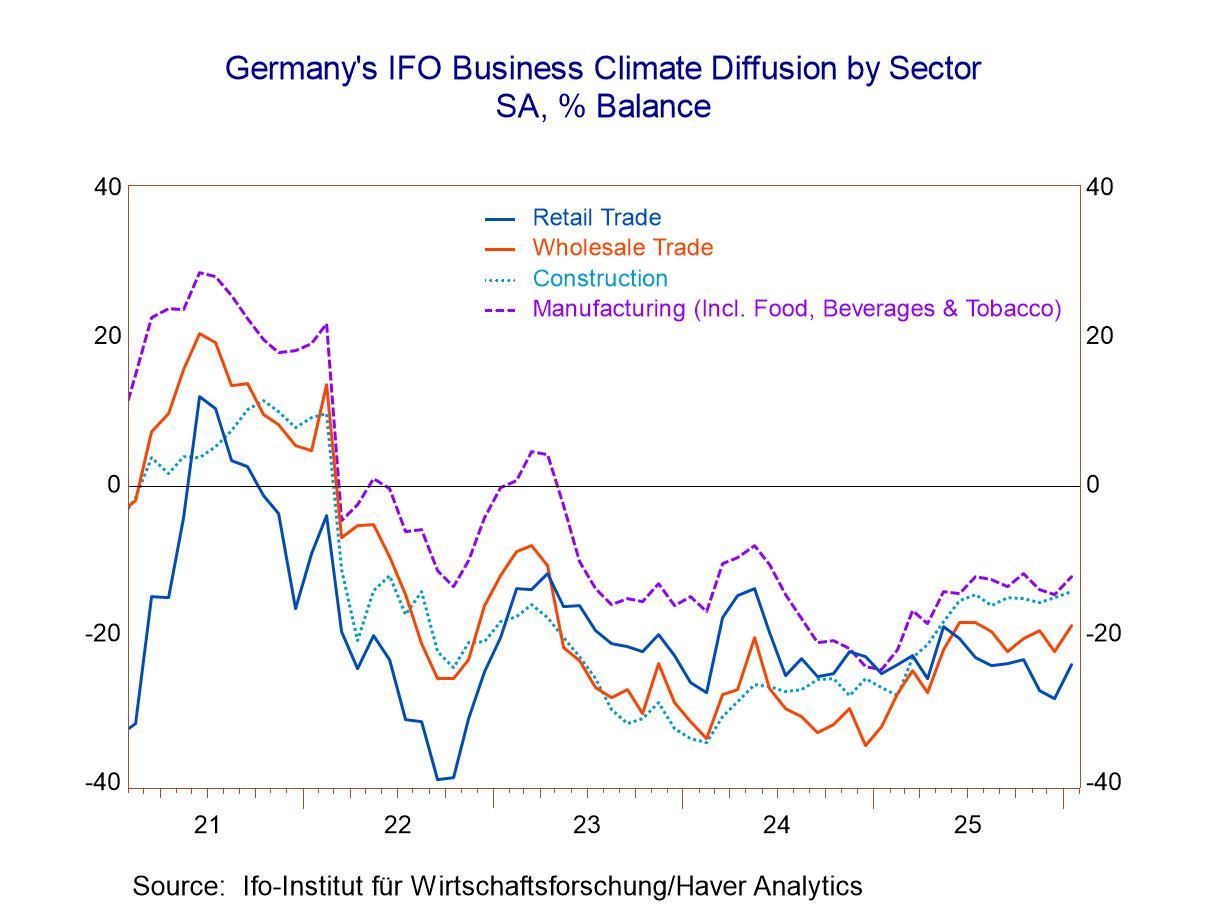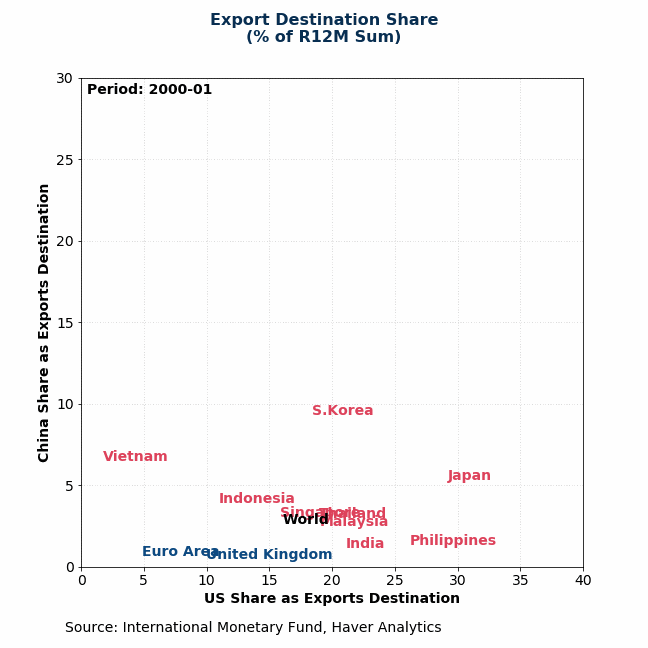U.S. Consumer Confidence Rebounds in December After Two Straight M/M Drops
Summary
-
Up 6.9 pts. to a higher-than-expected 108.3 in Dec.; highest since April.
-
Present Situation Index increases to a three-month-high 147.2 after two consecutive m/m declines.
-
Expectations Index recovers to 82.4, the highest level since Jan., following two successive m/m decreases, but recession risks persist.
-
Consumers more optimistic about the current business conditions and the short-term business conditions outlook; more upbeat about the present labor market and the short-term labor market outlook.
-
Inflation expectations retreat to their lowest level since Sept. '21.


The Conference Board U.S. Consumer Confidence Index rose 6.8% (-6.0% y/y) to 108.3 in December, the first monthly rise since September to the highest level since April, after a 0.8% decline to 101.4 in November (-2.0%; 100.2 initially). The December reading was down from 115.2 last December and 16.0% below its recent high of 128.9 in June 2021. A reading of 101.0 had been expected in the Action Economics Forecast Survey.
Consumers' views of present and future economic conditions improved this month following two consecutive monthly drops. The Present Situation Index rose 6.4% (1.7% y/y) to 147.2 in December, the highest level since September, after a 0.3% decline to 138.3 in November. The index was slightly higher than 144.8 last December. The Expectations Index rose 7.4% (-13.6% y/y) to 82.4 this month, the highest level since January, after a 1.5% drop to 76.7 in November. It was below 95.4 last December and down 26.4% from its recent peak of 111.9 in March 2021.
Labor market readings showed more optimism this month. The jobs gap, representing the difference between respondents indicating that jobs are plentiful and those saying jobs are hard to get, rebounded to 35.8% in December, the first monthly rise since September, from 31.5% in November. But it was below a record 47.1% in March and 44.2% last December. Calculated by Haver Analytics, this series has had a 67% correlation with the unemployment rate over the last ten years. The jobs plentiful measure rose this month to a three-month-high 47.8% from 45.2% in November, but it remained below a record 56.7% in March and 55.9% last December. The jobs hard-to-get measure fell to 12.0% of respondents in December from 13.7% in November, but it was up from a 9.6% low in March and 11.7% last December.
Consumers viewed business conditions as more favorable compared to last month. Current business conditions were perceived as good by 19.0% of respondents in December, the highest since September, up from 17.8% in November but down from 19.4% last December and a 25.2% high in June 2021. Expectations that business conditions would improve in six months were 20.4% of respondents, up from 19.8% in November and a 13.7% low in July but down from 25.4% last December and a record 42.5% in May 2020. More jobs were expected in six months by 19.5% of respondents, slightly up from 18.5% in November but down from 24.2% last December and a record 41.2% in April 2020. The percentage expecting rising income declined to 16.7% of respondents in December, the lowest since August, from 17.1% in November and 17.5% last December. But it was slightly up from a 15.3% July low.
Inflation expectations eased this month but remained high. The expected inflation rate in twelve months declined to 6.7% in December, the lowest since September 2021, from 7.1% in November. The December reading was down from a 7.9% high in June and 6.9% last December but noticeably up from a 4.4% low in January 2020. A 64.3% of respondents expected that interest rates would rise over the next twelve months, slightly down from 65.9% in November but up from 61.0% last December.
The share of respondents planning to buy a home within six months fell to a three-month-low 6.2% in December from 6.5% in November. It was down from 6.9% last December and a 7.7% high in July 2020 but up from a 4.5% July low. Those planning to buy a major appliance declined to 43.1% of respondents in December from 44.9% in November. The December reading, while slightly above a 41.1% July low, was below 47.8% last December and a 53.9% high in July 2021.
The Consumer Confidence data are available in Haver's CBDB database. The total indexes, which are indexed to 1985=100, appear in USECON, and market expectations are in AS1REPNA.


Winnie Tapasanun
AuthorMore in Author Profile »Winnie Tapasanun has been working for Haver Analytics since 2013. She has 20+ years of working in the financial services industry. As Vice President and Economic Analyst at Globicus International, Inc., a New York-based company specializing in macroeconomics and financial markets, Winnie oversaw the company’s business operations, managed financial and economic data, and wrote daily reports on macroeconomics and financial markets. Prior to working at Globicus, she was Investment Promotion Officer at the New York Office of the Thailand Board of Investment (BOI) where she wrote monthly reports on the U.S. economic outlook, wrote reports on the outlook of key U.S. industries, and assisted investors on doing business and investment in Thailand. Prior to joining the BOI, she was Adjunct Professor teaching International Political Economy/International Relations at the City College of New York. Prior to her teaching experience at the CCNY, Winnie successfully completed internships at the United Nations. Winnie holds an MA Degree from Long Island University, New York. She also did graduate studies at Columbia University in the City of New York and doctoral requirements at the Graduate Center of the City University of New York. Her areas of specialization are international political economy, macroeconomics, financial markets, political economy, international relations, and business development/business strategy. Her regional specialization includes, but not limited to, Southeast Asia and East Asia. Winnie is bilingual in English and Thai with competency in French. She loves to travel (~30 countries) to better understand each country’s unique economy, fascinating culture and people as well as the global economy as a whole.







 Asia
Asia